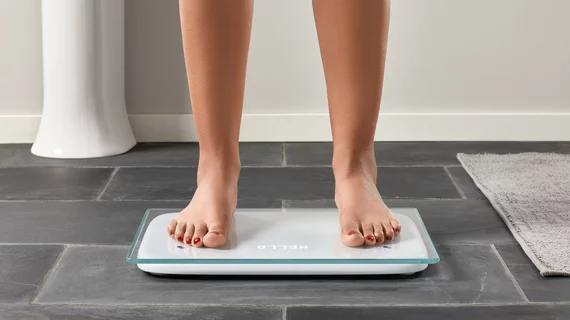Cardiac scale gains FDA clearance, putting patients 1 step away from a heart assessment
Bodyport, a San Francisco-based healthcare technology company focused on detecting cardiovascular disease, has received U.S. Food and Drug Administration (FDA) clearance for a new digital scale that can help monitor fluid retention and enable earlier interventions in heart failure management.
The scale was designed to help improve the chances of identifying signs of heart failure, kidney disease and other serious conditions in at-risk patients. According to data provided by Bodyport, heart failure is associated with 12 million clinic visits and 1.2 million hospitalizations on an annual basis.
The Bodyport Cardiac Scale works like any traditional scale, collecting data when a user steps on top of it. The user’s heart function and fluid status are then automatically evaluated using a series of sensors and advanced algorithms, and all relevant data is sent to the person’s care team.
The FDA cleared the device after reviewing data from multiple clinical studies throughout the United States.
“Successful heart failure management requires frequent access to meaningful information, such as fluid status, that is sometimes difficult to gauge by both providers and our patients,” Michael Fong, MD, a cardiologist with Keck Medicine of USC, said in a prepared statement. “During our clinical study using the Bodyport Cardiac Scale, we found patients more engaged, and our clinical team better empowered to make timely, individualized treatment adjustments to get ahead of changes in a patient’s condition before they worsen. We are excited about what we saw in the study; the interventions this has led to for some of our patients, and the potential impact it will have for our entire heart disease population.”
“As we bring this easy-to-use, noninvasive solution to market, we look to dramatically improve how patients with heart failure are currently managed,” John Lipman, Bodyport CEO, added in the same statement. “Patients with heart failure and their caregivers have few options outside of a standard weight scale or a costly and invasive implant. The comprehensive health assessment from the Cardiac Scale provides metric-driven, personalized care to those in need.”
This new solution is expected to hit the U.S. market by the end of 2022.

